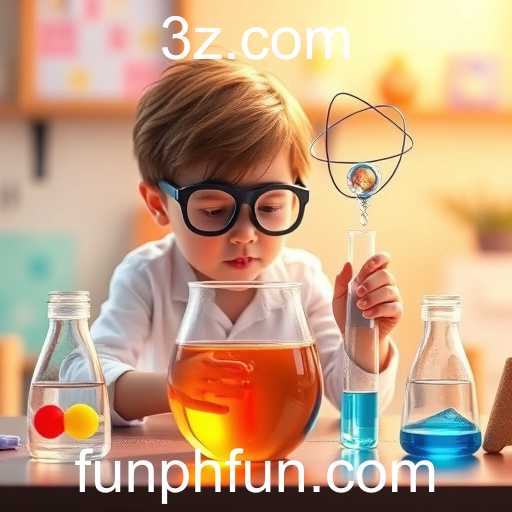Delve into the intriguing category of Science Experiments, facilitated by the unique keyword 'phfun', and explore how this platform sparks learning and creativity.
In a digital age where learning is seamlessly combined with entertainment, the category of Science Experiments stands out as a beacon for curious minds. Nestled within this genre is the distinctive keyword 'phfun', guiding users to a treasure trove of educational and engaging activities. This platform invites both the young and the young-at-heart to explore the wonders of science through interactive and playful experiments.
The concept of learning through play is not new, but it has been revolutionized by digital interfaces that allow for instant access and engagement. The Science Experiments category, branded under 'phfun', exemplifies this paradigm shift. It offers a vast array of experiments that cover various scientific disciplines—from physics and chemistry to biology and earth sciences. Each experiment is crafted to not just impart knowledge, but also inspire a sense of wonder and curiosity about the natural world.
The keyword 'phfun' serves as a perfect blend of 'physics fun', but its implications extend beyond just one branch of science. It encapsulates an approach to learning that prioritizes enjoyment and inquisitive exploration over rote memorization. Users engaging with 'phfun' can simulate chemical reactions, observe biological phenomena, and experiment with physical laws—all within a controlled, virtual environment that emphasizes safety and creativity.
One of the most significant advantages of 'phfun' experiments is their ability to cater to various learning styles. Visual learners can engage with graphs and simulations, while hands-on learners can follow step-by-step experiment guides to conduct on-screen activities. This adaptability ensures that no matter what the preferred learning method, every user can glean something valuable and relevant from the experiments offered.
Furthermore, 'phfun' integrates gamification elements to sustain engagement. Points, badges, and rankings motivate users to continue experimenting and learning, subtly encouraging a deeper dive into scientific topics. This gamified learning environment mirrors the tangential nature of curiosity, where one answer often leads to several new questions.
As digital learning ecosystems continue to grow, platforms that blend education with entertainment will undoubtedly shape the future of learning. The Science Experiments category linked with 'phfun' is a prime example of how such integration can create a robust, effective, and enjoyable learning experience. Whether for classrooms, home-schooling, or personal enrichment, the 'phfun' revolution offers a window into the limitless possibilities of scientific discovery.




